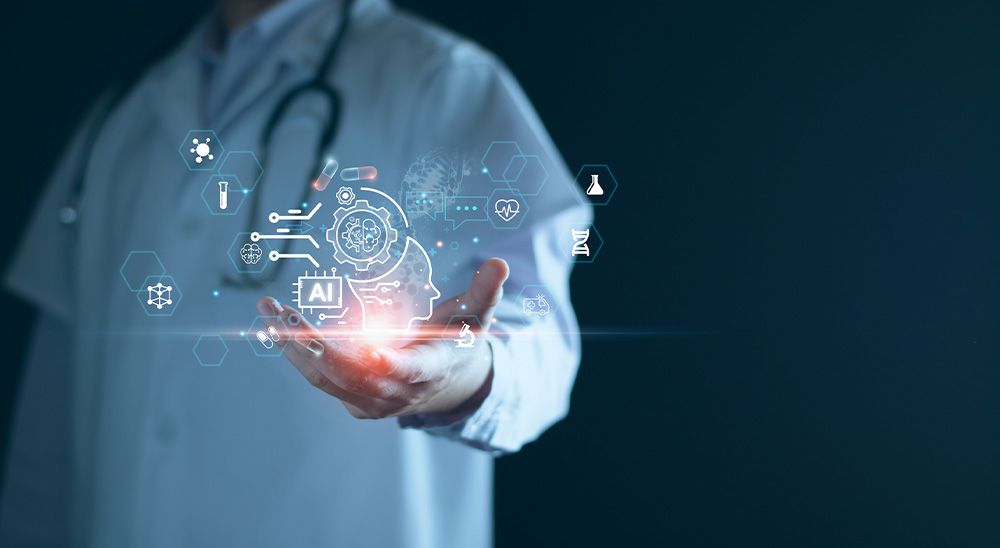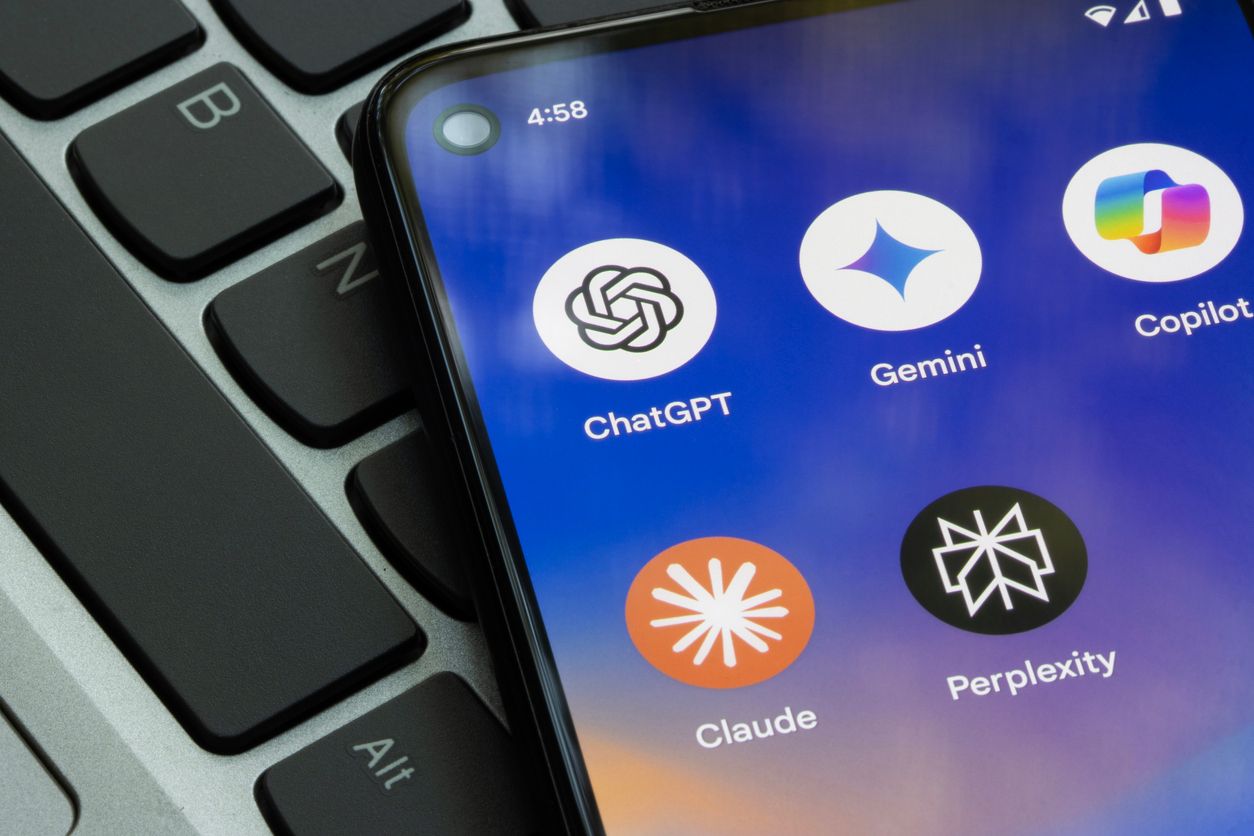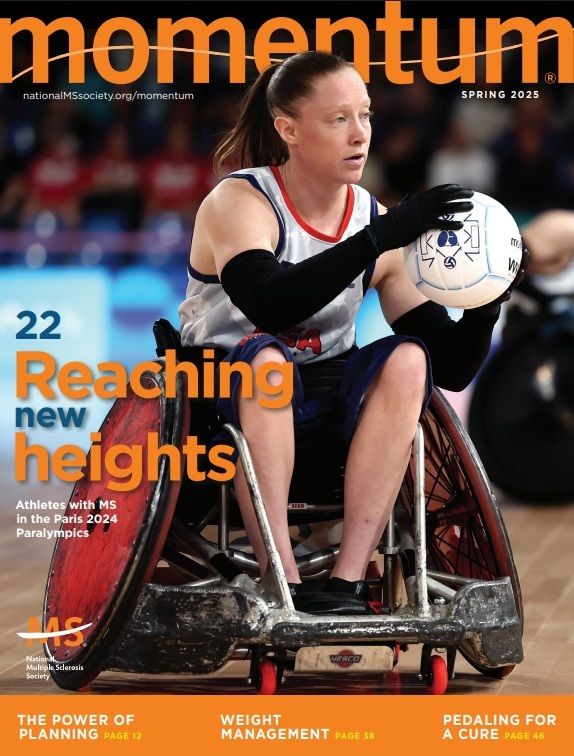How AI Is Changing the Model of MS Care

“How does artificial intelligence (AI) assist doctors in diagnosing diseases?” When you type this into the AI program ChatGPT, you will get a lengthy response that mentions its ability to analyze MRIs and recognize patterns in a person’s symptoms and medical history.Dr. Daniel Ontaneda, a neurologist and neurology professor at the Cleveland Clinic, doesn’t believe artificial intelligence will take his job, but says it’s changing the way he cares for people living with multiple sclerosis.“It’s not a question of if I’m using it [AI],” says Ontaneda, “it’s how much I’m using it. Almost everything we do now has a component of AI.”Ontaneda says over the years, the Cleveland Clinic has shifted to a more data-driven approach to MS care. And AI is now playing an important role. He uses AI to measure brain volume as he checks for brain atrophy (loss of brain tissue), which is common in neurodegenerative diseases such as MS.Much of Ontaneda’s research focuses on diagnostic biomarkers (signals of the disease process). The central vein sign (CVS) and paramagnetic rim lesions (PRLs) are two promising imaging biomarkers that can improve the accuracy and speed of MS diagnosis. Ontaneda says he can use an AI algorithm (procedure) to determine the number of lesions (damaged areas) that have these imaging biomarkers present.“That’s incredibly transformative for us as neurologists and will make our life much easier,” says Ontaneda about this AI application.While Ontaneda continues to reap the benefits of AI in clinical care, he still believes connecting with people is the most important part of his job. But, he says, AI is also helping him do that like never before.Before he goes into an exam, AI can pull up notes relevant to the type of MS that person has.Ironically, AI can improve personal contact during appointments. After obtaining permission from each patient, Ontaneda uses software that listens in and records appointment conversations. An AI algorithm then turns the recording into a neurological note that, if he were to write himself, would be similar. Not only does this reduce the risk of errors, but it also helps him enjoy appointments even more.“It allows me to connect better with the person living with MS,” Ontaneda says. “It’s the simple things, such as looking them in the eye and just listening to them while you have a conversation. This is a clear example where technology actually allows you to make a much more human connection.”
How People With MS Can Use AI
MS providers and researchers aren’t the only ones using AI. Ontaneda and Dr. Darin Okuda, a neurologist and neurology professor at the University of Texas Southwestern Medical Center, say their patients use it to learn about new symptoms they may be experiencing. While Okuda says he needs to dispel some of the information people receive, he says leaning into AI is helping him stay relevant.“I think people need to have trust in their care provider,” says Okuda. “We definitely can’t stick to the same model of delivery of care we did 20 to 25 years ago.”Ontaneda feels that people with MS are their own best advocates, and he encourages them to use AI tools to their advantage. But, he also warns people to use tools like ChatGPT in a safe way and alongside the recommendations of their healthcare team. For example, those dealing with trigeminal neuralgia (shock-like facial pain) can search for “treatments for trigeminal neuralgia” in ChatGPT and then take the curated list to their next appointment to go over the results with their doctor, he says.“Your provider probably has 2 or 3 of those [results] that are his go-to,” Ontaneda says. “I love when my patients bring themes up that I haven't thought about. That, to me, is the key to success. I’m working for them. If they give me additional ideas on how to improve things. I’m all for that.”

Predicting the Future of Artificial Intelligence in Multiple Sclerosis Research
The National Multiple Sclerosis Society is leading the unified global effort to accelerate the most promising research to find MS cures. And the Pathways to Cures Roadmap is the plan to find those cures. As part of its 2024 update, the roadmap recommends incorporating new techniques to utilize AI in MS research.One of the roadmap’s major target areas is detecting MS at the earliest possible stage. Ontaneda acknowledges that identifying the disease before people experience symptoms is a challenge. But he believes environmental risk factors, genetics, MRI scans and other variables can help determine who in the general population has a higher risk of developing MS. Advanced technology will be necessary to combine all of these variables.“One solution is AI,” Ontaneda says. “You could use an AI algorithm to predict who’s going to develop MS. Based on that, perhaps you can have an intervention early on to target based on the pathway.”Ontaneda and other providers say there is a delicate balance when it comes to diagnosing MS as early as possible. Doctors want to be fast and accurate in their diagnosis but also avoid errors. According to Ontaneda, 1 in 5 people are misdiagnosed with MS, but he believes AI can improve that.When looking at MRIs, Ontaneda points out, he and others can only see what the human eye can see. But, he adds that there may be different patterns and signals in the brain not visible to the naked eye to differentiate between brains with and without MS. He envisions an algorithm that incorporates MRI data, biomarkers and other features to determine if a person has the disease.“If AI presents me a mountain of data showing me why it is likely that this person has MS, it’ll help me,” Ontaneda says.Together with his research team, Okuda recently examined how Chat GPT performed in diagnosing MS and a disease that shares symptoms with it, neuromyelitis optica spectrum disorder (NMOSD). They looked at numerous clinical records and created variations in age, race, ethnicity and sex.“After inserting the clinical experience, the findings from a blood test or MRI scan, these computerized systems are very good at diagnosing MS,” Okuda says. “Now, with that, you don’t get the humanistic aspect of care. It’s very insensitive with how it releases information. But in the future, that may change.”The roadmap also places an emphasis on tailoring the use of disease-modifying therapies (DMTs) to each person’s disease course. This is called precision medicine. According to Ontaneda, MS researchers have a lot of ground to make up in this area, but says AI can help get them there.“We need to understand the biology [and genetics] of the disease better,” Ontaneda says. “That will likely incorporate AI."Ontaneda and others in the MS community are excited about the impact AI can have on creating a world free of MS and helping people with MS live their best lives. But, they recognize that, when it comes to using AI in MS research and care, regulations must be implemented and enforced. Regulations include being transparent with patients on when and how AI is being used and ensuring people with MS remain at the center of MS research. People living with MS also need to feel confident their data and personal information remains confidential and is protected from data breaches. And from a scientific perspective, Ontaneda says researchers will need data from across the entire MS population to create AI-based algorithms and prediction models. He says this high-quality data will reduce bias (inaccurate data not representative of the population), which he says is a drawback of AI. For example, if researchers use current data to predict how someone with MS will respond to a treatment, Ontaneda believes they might identify how someone with European ancestry would respond. But, he says those results might not apply to a person from South America or the Middle East.“The AI you produce is going to be as good as the data that you put into it,” he reminds people.










